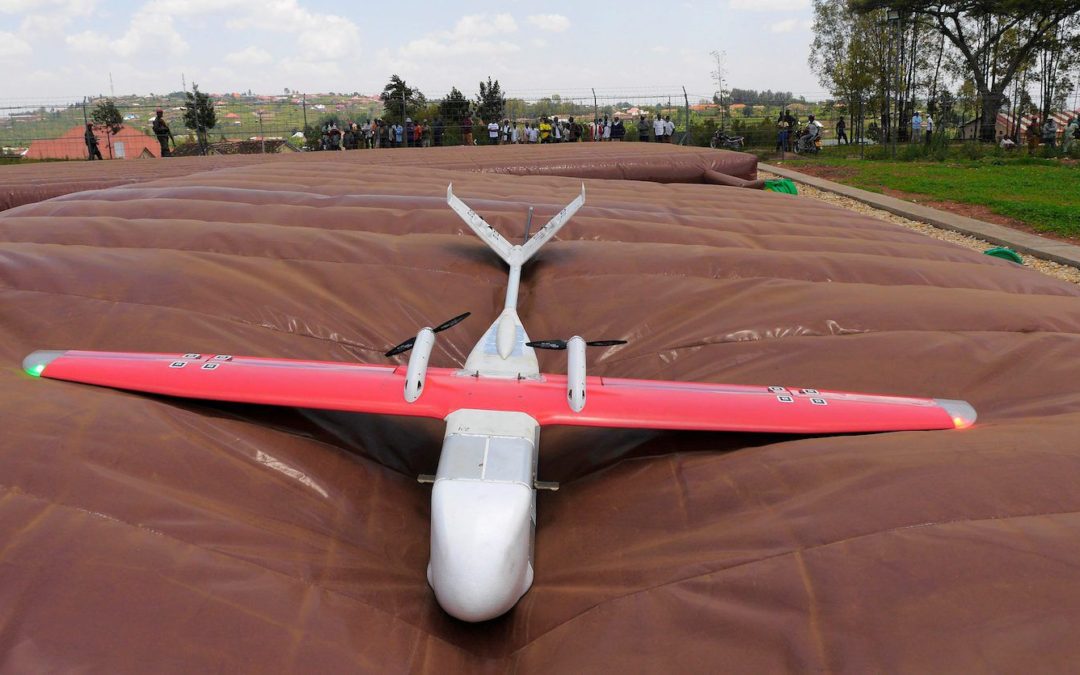Muhanga, Rwanda
The world’s first commercial drone delivery service operates from a hill almost smack dab in the middle of Rwanda. A barbed wire fence surrounds a field, a white tent, and a control tower. From here, Zipline, a San Francisco-based robotics company, delivers blood by drone to almost half of all Rwanda’s blood transfusion centers. Orders are made online, by text, phone, or WhatsApp. A technician sits in a refrigerated room where the blood—specifically red blood cells, platelets, plasma, and cryoprecipitate—are stored, communicating with his team over Slack. An order has come in for a hospital about two hours away by car. The drone delivers the package in 20 minutes.
“To have a proven model here first in Rwanda is amazing,” says Maggie Jim, who manages global operations and communications for Zipline. She says the company is talking with other governments in Africa, including Tanzania’s, as well as in Latin America about launching drones services there.
That African countries are emerging as a test bed for new ideas that Western countries—bogged down by strict regulations or antiquated systems—are too slow to try has become something of a popular narrative. Foreign investors and companies are still wary of setting up on the continent while local startups, especially those outside of Nigeria, South Africa, or Kenya, struggle to get funding.
Drones are one area where African countries are proving more accepting and innovative. The commercial drone industry has been slow to start in most other parts of the world. The United States prohibits drone flights that leave the line of sight of a human pilot. In contrast, African countries like Rwanda, Cameroon, Malawi, South Africa, and Kenya are increasingly open to the use of drones in tourism, health services, and e-commerce.


Kenya recently said it would allow the commercial use of drones. In Malawi, drones have been deployed to transfer HIV tests to and from rural parts of Malawi. Elsewhere they’re being used to combat poaching or to augment safaris. A Cameroonian start up named Will & Brothers recently raised $200,000 to begin assembling and producing within the country parts for drones. In Rwanda, another drone company has plans to build what would be the world’s first civilian “drone port” for…

